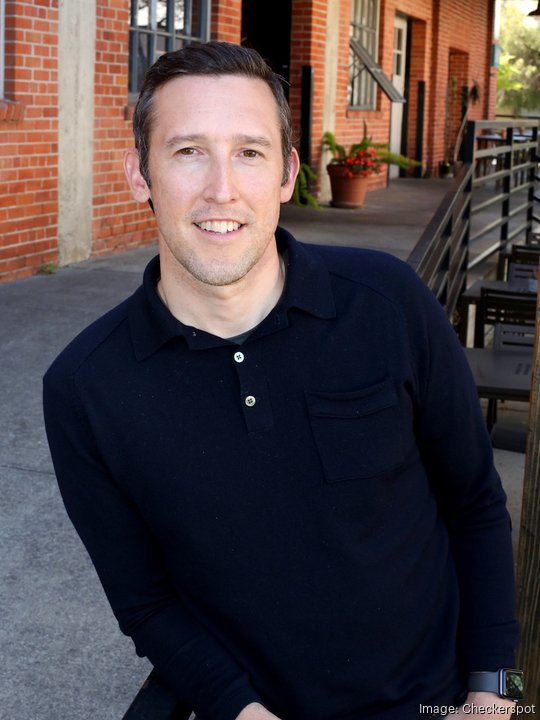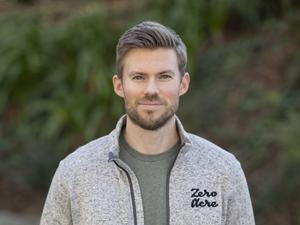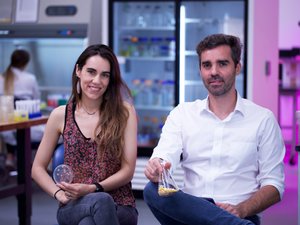
An Alameda startup is producing oil derived from algae that can be used as a replacement for petroleum-based products, and its resin alternative recently won an award at South by Southwest.
Checkerspot won an innovation award at the annual conference in Texas earlier this month for a resin making kit that can be used to make casts from molds.
Called the Pollinator Kit, it allows designers to hand mix a pourable polyurethane material that contains its proprietary algae-based oil. Each kit retails for $60 to $70 per one liter-worth of resin.
It's not the only product in Checkerspot's lineup, though.
The company was founded in 2016 by CEO Charles Dimmler and Chief Scientific Officer Scott Franklin.
They wanted to create high performance materials that could help transition industries away from fossil fuels, and named the company after an endangered butterfly species.
"We continue to be really focused on performance of materials and ingredients," Dimmler said. "Sustainability is more of a design constraint. Performance is first."
They started with a focus on products for outdoor recreation but see potential for their oil to be used in other industries across materials, beauty and consumables.
It's already being used to manufacture high-density foam for skis and snowboards, which are marketed under the brand WNDR Alpine and beginning at $599 and up.
And it's also used as a wicking agent to help textiles dry more quickly through a partnership with clothing retailer Pangaia for its activewear line.
Checkerspot also reclaims the waste products from the manufacturing of its skis and snowboards for reuse.
The company has around 85 employees who are primarily split between its laboratory in Alameda and a research, development and testing facility in Salt Lake City, Utah.
"When we think about biotechnology, there's such a rich talent pool here in the Bay Area," Dimmler said.
Even though a lot of manufacturing has shifted overseas over the past few decades as way to cut costs, having domestic production and testing facilities has insulated Checkerspot from supply chain disruptions.
"I can't say enough about how valuable it has been to be able to design, build, test so rapidly. To not have to wait for that product to ship across the ocean," Dimmler said. And "to not have to take the risk because you designed something digitally that doesn't manifest physically in the way you had intended it to. That's where the cost savings really lies."
While the company isn't profitable yet, Dimmler is eyeing reaching profitability within a few years.
"Given the revenue that we're generating, we could do that, but we're not just optimizing for profitability. We're also targeting making a dent on the climate crisis," Dimmler said. "There's a timeline. So, we have to move with some urgency. And the only way we can have any kind of impact, however small or big, requires scale, requires speed. And that's gonna require more capital."
They have raised $109 million through a Series C and its investors include Cox Enterprises, Baruch Future Ventures, Reach Capital, Cavallo Ventures, Breakout Ventures, Plug and Play, DIC Group and Refractor Capital.








